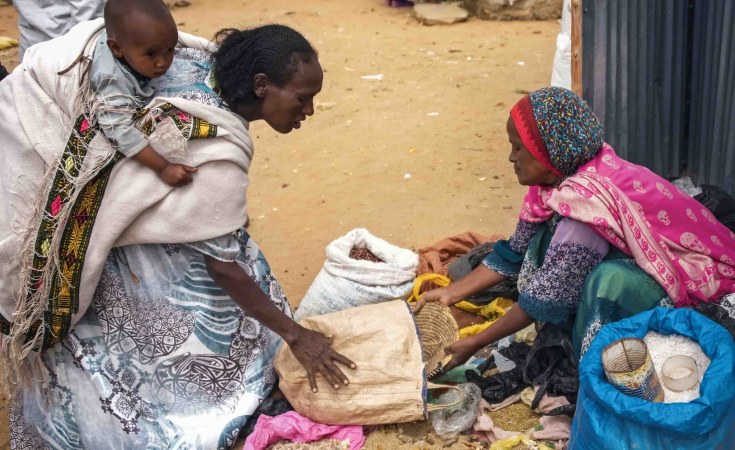Addis Abeba — During an online briefing yesterday, U.S. Assistant Secretary of State for African Affairs Molly Phee, alongside Horn of Africa Special Envoy Mike Hammer, urged Ethiopian and Somali leaders to address their tensions through dialogue.
Assistant Secretary Phee stressed that the question of Somaliland's status "ought to be settled by the people of Somalia," encompassing those in Somaliland, and not by "external actors."
While recognizing Ethiopia's "valid concern" regarding port access through Somalia, Phee further urged "respect for Somalia's sovereignty.
She stated that such issues should be resolved cooperatively with the federal government of Somalia and neighboring countries. "Resolving the issue through regional talks could also be part of a regional approach that is based on cooperation and regional economic and security integration," she suggested.
The assistant secretary announced that she had been in Addis Abeba and Mogadishu and discussed with the leaders of the two countries, trying to help them communicate better.
The signing of the memorandum of Understanding (MoU) on 01 January 2024, granting Ethiopia access to the sea has escalated tensions in neighboring Somalia, which argued that the MoU "violates its sovereignty and territorial integrity."
Phee further emphasized that "the region cannot afford more conflict" and stressed that the tension created following the MoU signed by Ethiopia and Somaliland should be de-escalated.
During the briefing, Mike Hammer, Horn of Africa Special Envoy, updated on the implementation of the Pretoria Peace Agreement, noting progress as well as outstanding priorities for the deal's success.
"We expressed U.S. support for the full implementation of the Pretoria Cessation of Hostilities Agreement (COHA)," said Hammer.
While noting positive momentum with disarmament plans, the special envoy also highlighted issues requiring further action, "We remain concerned by the lingering presence of Eritrean troops on Ethiopian territory. It is also urgent that internally displaced people who have suffered so much be able to return to their homes," said Hammer.
Yesterday, Mike Hammer and Ervin Massinga, US Ambassador to Ethiopia, held a discussion in Tigray's capital, Mekelle, with Getachew Reda, the president of the interim administration, and other senior regional leaders.
According to Tigray Television, the discussion included the return of displaced individuals, the restoration of constitutional norms pre-dating the war, the rehabilitation of ex-combatants, and addressing the humanitarian crisis in the region.
The special envoy also announced a $15 million U.S. commitment for the launch of crucial post-conflict disarmament, demobilization, and reintegration (DDR) programs.
Earlier this week, the Ethiopian Human Rights Commission (EHRC) released a 40-page report highlighting persisting challenges present in the Tigray region following the Pretoria Cessation of Hostilities Agreement (CoHA) signed in November 2022.
The report noted that the full recovery and operationalization of basic services in sectors such as education and health and the full functionality of the law enforcement sector are still significant challenges.
During the briefing, assistant secretary Phee and Horn of Africa Special Envoy Mike Hammer also discussed the security issues in the Amhara and Oromia regions. Phee stressed U.S. concerns about civilian impacts from clashes between security forces and armed groups in the two regions.
"We have expressed concern publicly and privately about the conduct of security services in responding to insurgent and criminal attacks. We know that that's a complicated security challenge, but more must be done to respect the rights of civilians," she said.
The U.S. officials also signaled a willingness to help facilitate reconciliation talks if there is genuine political will from the parties involved.
"We appreciate that the Government of Ethiopia has expressed openness to dialogue, and we are ready to help," noted Hammer. "There is no military solution to these conflicts."


